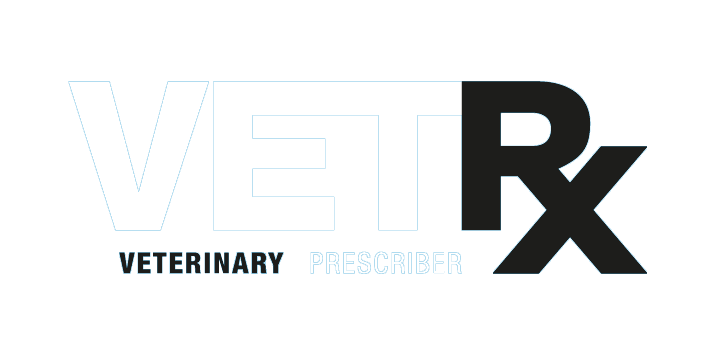Remdesivir, cats and the cascade
The antiviral drug remdesivir became a household name last year after it emerged as a potential treatment for COVID-19. Originally investigated as a treatment for Ebola infection, by July 2020 the pharmaceutical company Gilead had received a conditional marketing authorisation from the European Medicines Agency for remdesivir under the brand name Veklury, for treatment by intravenous infusion of COVID-19 patients with pneumonia requiring supplemental oxygen. Randomised controlled trial evidence had found that the drug shortened recovery time in COVID-19 patients from 15 to 11 days so that they spent less time in hospital or on treatment. A conditional authorisation, which was awarded on the basis of limited data due to the urgency of the pandemic, means that Veklury is being monitored intensively through a detailed risk management plan.
What this has to do with cats is that remdesivir is a potential treatment for feline infectious peritonitis (FIP), an uncommon disease in the cat caused by certain strains of the feline coronavirus. Once a cat develops clinical FIP, the disease is usually progressive and almost always fatal without treatment. There are no medicines licensed for the treatment of FIP.
Antivirals active against coronaviruses
Coronaviruses enter host cells where they multiply using the virus’ own RNA polymerases. Remdesivir is a pro-drug that becomes active after it enters cells and is metabolised into an analogue of adenosine triphosphate (ATP) that inhibits viral polymerase and so stops coronavirus replication. An intermediate metabolite of remdesivir known as GS-441524 (a substance also manufactured by Gilead) has been investigated and shown some promise in a few studies as a treatment for cats with FIP (Amirian & Levy 2020). However GS-441524 is apparently only available as a research chemical.
Cascade prescribing
When there is no suitable authorised veterinary medicine available to treat an animal, vets have recourse to other options using a risk-based framework known as the cascade. UK doctors follow the same risk-based framework, although it is set out in guidelines from the human medicines regulator (MHRA 2014) rather than set in law as it is for vets (VMR 2013). And, as there are many more authorised medicines to meet the needs of humans, doctors do not need to make this type of risk-based decision as often as vets.
For doctors and vets consideration of an unlicensed medicine is the last step of the cascade (i.e. it is associated with the highest risk). Unlicensed medicines include bespoke medicines, known as ‘specials’ (also known as extemporaneous preparations or compounded medicines) that are manufactured or compounded for the treatment of an individual patient. In the UK, there are companies that are authorised by the VMD to manufacture veterinary specials, which means that there is a high degree of certainty about the quality of the companies’ products, and which is why the VMD and RCVS recommend sourcing specials from such companies. Importantly, the VMD authorises the companies, not the products they make because, as unauthorised medicines, ‘specials’ have not been clinically tested for efficacy or safety and so there is an unknown level of risk associated with their use. For this reason, advertising of specific products by specials companies is forbidden.
Prescribing dilemma
The dilemma for vets is that GS-441524 (for which there is some evidence of efficacy in cats) is not readily available and there are rumours about cat owners obtaining it illegally on the ‘black market’. To use it legally, it would need to be sourced and legally imported by a vet (with the VMD’s permission) and formulated if not in a suitable form to administer. Feline vets have therefore reached for remdesivir as a treatment for FIP, not as the authorised human product, but as a ‘special’ manufactured in the UK by an authorised veterinary specials manufacturer and following anecdotal dosage recommendations based on the experience of Australian vets.
How will the benefit:harm ratio be assessed?
Given the experimental nature of the use of remdesivir in cats, something needs to happen to ensure that evidence is gathered about its efficacy and safety. It is not clear whether or when such experimental use needs to become regularised or formalised as part of a clinical trial. There is no central monitoring of the type or quantity of ‘specials’ used to treat animals, and without data collection there is a danger that anecdotal reports will prevail so the veterinary community, and cat owners who pay for the treatment, will remain none the wiser about its true efficacy. There seems to be a fantastic opportunity here for collaboration and cooperation, perhaps internationally, to better understand this treatment.
Wrtten by Andrea Tarr
Founder and Director, Veterinary Prescriber
Thanks to Sarah Keir for help in writing this blog. Read Sarah’s own blog here: https://www.sarahthevet.com/
Want to know more about veterinary specials? There’s a CPD module in Veterinary Prescriber’s Virtual Veterinary Medicines Academy. If you’re a subscriber, click the image to go to it.
What will you get as a subscriber?
Access to Veterinary Prescriber's Virtual Veterinary Medicines Academy to help you get to grips with the often complex and complicated area of veterinary medicines. Including:
the library of CPD modules, with a new module added every month
certificated CPD quizzes in each module
note-taking area to record personal notes
tips for reflective exercises to help with objective-led CPD
SQP/RAMA-accredited CPD
unique product guides - the companion-animal Parasiticide Guide and Specials Database
monthly medicines news to keep up to date with regulatory changes, newly marketed medicines, newly authorised medicines, reclassifications, and changes to product information (adverse effects information etc)
the Dog's Blog opinions on a wide range of medicine topics
access to Ask Andrea! -- a medicines information service designed to help with medicines queries. So, as a subscriber if you have a medicines question, all you need to do is Ask Andrea!
References
Amirian ES, Levy JK. (2020) Current knowledge about the antivirals remdesivir (GS-5734) and GS-441524 as therapeutic options for coronaviruses. One Health 9: 100128
Guardian Covid-19 treatment: Gilead Sciences urged to study drug that showed promise with cats. https://www.theguardian.com/world/2020/aug/04/covid-19-gilead-sciences-gs-441524-remdesivir-cats
Medicines and Healthcare Products Regulatory Authority. (2014) The supply of unlicensed medicinal products (“specials”). MHRA Guidance Note 14. Appendix 2. Guidance on the hierarchy for the use of unlicensed medicines. https://assets.publishing.service.gov.uk/government/uploads/system/uploads/attachment_data/file/373505/The_supply_of_unlicensed_medicinal_products__specials_.pdf. [Accessed 5 September 2021]
Mobasheri A. COVID-19, companion animals, comparative medicine, and One Health. Front. Vet. Sci., 14 August 2020. https://www.frontiersin.org/articles/10.3389/fvets.2020.00522/full
Public Citizen https://www.citizen.org/news/public-citizen-scientists-gilead-and-federal-scientists-have-neglected-a-potentially-promising-covid-19-antiviral-drug/?eType=EmailBlastContent&eId=a60735a4-147d-4405-a421-51c7acbee176.
Veterinary Medicines Regulations 2013. Schedule 4. Administration under the cascade. https://www.legislation.gov.uk/uksi/2013/2033/schedule/4/made

